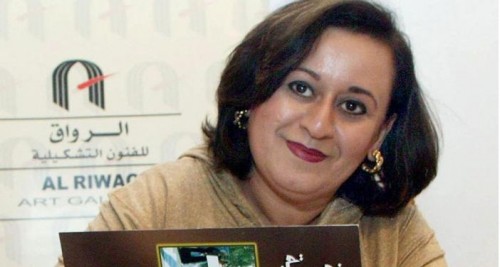
Bahraini human rights defender Ghada Jamsheer was arrested on 15 August 2016, one month ago. She had just returned to her home country of Bahrain after spending several months in London for medical treatment. As soon as she arrived at the airport in Manama, police arrested her on charges related to her criticism of Bahraini leaders and the lack of free speech rights in the country. The pending charges against her add up to a total prison sentence of two years and eight months. It is reported that authorities continue to hold her in Isa Town Women’s Detention Center.
Given Bahrain’s track record of criminalizing all forms of political dissent, it is not surprising that officials made a concentrated effort to swiftly detain Jamsheer upon her return. Ghada Jamsheer has come to prominence after founding the Women’s Petition Committee (WPC) in 2001, which advocated heavily for codified family laws to protect women from gender-based discrimination in family court. Jamsheer has also made several accusations of government corruption via Twitter. Her tweets related to electoral gerrymandering, the role of nepotism in appointing government officials, and the royal family’s influence over healthcare management in King Hamad University Hospital, were chief grounds for her prison sentences.
Jamsheer’s push for gender equality in the form of personal status laws has been highlighted in press worldwide. In 2006, Time magazine named her as one of four heroes of freedom in the Arab world. Forbes honored her that same year by placing her on their list of top 10 most powerful women in the Arab world. The fact that such a well-known human rights figure has been arrested over tweets raises larger questions about Bahrain’s repression tactics.
Ghada Jamsheer is not the only victim of the government’s repression. In the weeks leading up to the 33rd Session of the United Nations Human Rights Council (HRC), which is currently meeting in Geneva, Bahrain placed travel bans on several human rights advocates to prevent them from participating in the conference. On 13 June 2016, officials banned Jalila Al-Salman, President of the Bahrain Human Rights Observatory, whose arrest history dates back to her involvement in the 2011 Bahraini protests. One day later, authorities barred Enas Oun, a member of the Bahrain Center for Human Rights (BCHR), from leaving the country to attend a human rights workshop in Tunis.
Political analysts have theorized that Bahrain’s targeting of women and children serves to deter those who speak out against the government’s mistreatments. Since 2011, BCHR has received approximately 300 complaints related to the arrests, torture, and detentions of women who express their rights to freedoms of speech and assembly. BCHR also reports that Bahraini authorities exploit the broad language of its counterterrorism laws to convict minors of terrorism. Criminal courts invoked this law to arrest and charge an estimated 1500 children under the age of 15 between 2011 and 2015.
Even family organizations that focus on apolitical issues, such as domestic abuse shelters and free mental wellness clinics, have seen their government charity funds slashed. This strategy invokes fear in all political dissidents, who may worry that their actions will result in violent reprisals against the women and children in their communities.
The result of this censorship is highly visible in the current HRC session, which has been inundated with representatives from government-formed bodies that speak on social issues (dubbed GNGOs in the NGO world). Bahrain’s GNGOs offer viewpoints that are skewed in the government’s favor, and they dilute the voices urging the international community to call for reform in Bahrain.
The international community should be concerned about the current human rights situation, particularly for those who wish to publicly express their political opinions and grievances. Now that all prominent voices of peace in Bahrain are in jail, space may be created for fringe opinions to become dominant among civil society. Thus, the current protest movement, as well as police response civil unrest, has the potential to turn violent.
The U.S. Department of State has expressed concern over Bahrain’s recent actions, including the solitary confinement of Nabeel Rajab and the dissolution of political opposition society, Al-Wefaq. However, the U.S. government has failed to accompany its statements with direct action. Instead, it is upholding friendly diplomatic relations while Bahrain amplifies its encroachment on citizens’ rights.
Farah Kader is an Advocacy Fellow for ADHRB.





